The Palestinian population is intimately familiar with how new technological innovations are first weaponized against them–ranging from electric fences and unmanned drones to trap people in Gaza—to the facial recognition software monitoring Palestinians in the West Bank. Groups like Amnesty International have called Israel an Automated Apartheid and repeatedly highlight stories, testimonies, and reports about cyber-intelligence firms, including the infamous NSO Group (the Israeli surveillance company behind the Pegasus software) conducting field tests and experiments on Palestinians.
When discussing Gaza or the West Bank, it’s critical to understand that Israel’s achievements in AI and overall technological edge is perpetuated by the use of drones or unmanned aerial vehicles (UAVs) and other warfare technologies that are first tested in Palestine and the occupied territories before being exported abroad. Reports have highlighted:
“testing and deployment of AI surveillance and predictive policing systems in Palestinian territories. In the occupied West Bank, Israel increasingly utilizes facial recognition technology to monitor and regulate the movement of Palestinians…Israeli military leaders described AI as a significant force multiplier, allowing the IDF to use autonomous robotic drone swarms to gather surveillance data, identify targets, and streamline wartime logistics.”
The Palestinian towns and villages near Israeli settlements have been described as laboratories for security solutions companies to experiment their technologies on Palestinians before marketing them to places like Colombia, India, and Mexico. Since at least 2012, NSO Group’s controversial surveillance products–which allow users to penetrate any cell phone without the target’s awareness–have been public knowledge. The debates around “privacy” and “owning your data” seem rather asinine considering all of the open-source information pertaining to the Intel Management Engine’s backdoor capabilities or its Memory Sinkhole vulnerabilities. It’s also worth noting that Intel, a California-based tech juggernaut, considers itself “an Israeli company as much as a US company.”
A recent article in The Intercept asserts that since NSO Group was blacklisted by the U.S. Department of Commerce in 2021, their recent effort to aid the Israeli government in finding Israeli citizens in Gaza, seems like an attempt “to rehabilitate its image in this crisis.” While it’s positive that The Intercept is highlighting NSO Group’s attempt to rebuild its public image, the nature of the alleged “blunder” itself is worth questioning considering Hamas was able to charge into Tel Aviv by slashing through the barricades at a border that’s, supposedly, embedded with a myriad of sophisticated surveillance software and devices (including NSO’s Pegasus spyware). Israel is assumed to have one of, if not the most, advanced border surveillance system with cameras and ground motion sensors. Additionally, Pegasus is presumed to be one of the Israeli tech sector’s most highly sought-after products that’s been sold to intelligence and law enforcement agencies around the world.
According to a Washington Post article:
“Hamas fighters neutralized long-range cameras, sophisticated sensors and remote-control weapons — a tactic known inside the group as the ‘blinding plan’ — to breach the high-tech fence…the Post reconstructed the attack by analyzing hundreds of videos and photos posted online, including visuals filmed on Oct. 7 and during preparations by Hamas fighters.”
It’s not clear exactly how the Post “reconstructed” the attack; perhaps they were given access to footage and geolocation data and were able to create a computer model of what could have taken place at the border. The Post also reported on the New York Times story that the Israeli government had information (for over a year) about a planned Hamas attack on Israeli territory. They appear to have ignored warnings from their own and neighboring intelligence services about Hamas’ “blinding plan” which has now led to the Israeli military and tech companies racing to “innovate” and develop new hi-tech weapons, advanced surveillance systems, and AI that will utterly destroy the Gaza strip so that these same forces may then rebuild (or “Build Back Better”) a demilitarized and “deradicalized” Gaza.
Just as the Israeli military and its contractors attempt to perfect their surveillance and AI systems, it seems like the Israeli government hopes to crystalize its “automated apartheid” through the tokenization and privatization of various industries and establishing a technocratic government in Gaza. Much of the groundwork for this was developed and planned out by the Trump Administration. Recently, crypto companies with close ties to Netanyahu and the digital currency advocates selling pipe dreams of “decentralization” to people in Palestine (and also the Global South) are picking up where the Trump administration left off.
Trump’s “Peace to Prosperity” Woes & Jared Kushner’s Bahrain Blowout
The Trump administration’s Israel-Palestine “solution,” known formally as the Peace to Prosperity plan, was engineered by Israeli government insiders and needed to be implemented by Likud Party affiliates in Israel. As a result, it was dead on arrival given its one-sided nature. As part of the plan, Donald Trump tapped an Israeli crypto start-up, Orbs, to help his administration leverage smart contracts and blockchain technology for social impact projects in order to bring “verifiable trust, transparency, and external auditability.” In 2018, Orbs raised over $133 million in an initial coin offering (ICO) and, in 2021, partnered with Binance to launch a “DeFi accelerator” (to promote innovation in decentralized finance). Orbs was built as a public blockchain designed to help governments iron out any bureaucratic challenges from migrant identification to tracking aid funds.

Netta Korin, a partner at Orbs and founder of its associated Hexa Foundation, was one of the Israeli business executives who attended the Bahrain Conference hosted by Trump’s son-in-law, Jared Kushner (more on that shortly). Hexa Foundation works on projects involving “identification for refugees, credentials wallets, using blockchain to track aid funds and fund traceability for employment in politically unstable areas of the world.” She was previously an advisor to General Yoav Mordechai, from the Israeli Ministry of Defense, and her husband was an aide to Moshe Kahlon, from the Israeli Ministry of Finance. Korin got her start on Wall Street as an investment banker at Lehman Brothers where she worked under Ron Lubash, founder of Markstone Capital Group. Lubash’s co-founder, Elliott Broidy pled guilty in a pension scandal involving the New York Retirement Fund that Broidy arranged to invest $250 million in Markstone Capital Partners. In 2020, Broidy was convicted for failing to register as a foreign agent on behalf of China and Malaysia. He was later pardoned by Donald Trump.

Shortly after the Israel-Hamas war broke out, Jared Kushner, went on the All-In Podcast to discuss Trump, Israel, Hamas, and a gathering he organized in Bahrain back in 2019 (where he presented the so-called “Peace to Prosperity” plan). The event was the perfect pretext for Kushner to promote and sell the Abraham Accords to Arab leaders and it was praised by publications like Fortune magazine. The Abraham Accords were a series of cooperation and normalization agreements between Israel and leaders from, United Arab Emirates (UAE), Bahrain, Morocco, and Sudan spearheaded by Kushner and other members of the Trump administration.
During the interview, Kushner talked about how Stephen Schwarzman (from Blackstone Group) and Randall Stephenson (CEO of AT&T) attended the gathering in Bahrain and implied that they seemed eager to invest in the Palestinian economy because of its proximity to Israel, robust population, and cheaper labor–“the prospects for prosperity spillover are massive!” (Kushner exclaimed). Fortunately for Kushner, he wasn’t being interviewed by people who would challenge his ill-considered, accelerationist ideas. He was, instead, surrounded by figures like David Sacks, of the PayPal Mafia, who hosts the All-In Podcast (along with three others). In a recent interview with Tucker Carlson, Sacks shared that, although he’s against “revolutionary politics” he’s in favor of revolutionary change in the narrow category of technology because it’s the basis of “American prosperity” and, like Peter Thiel, he doesn’t want innovators to be stifled by leftists who want to slow down technological innovation with regulations.
Ultimately, Kushner smugly attempted to argue that practically everyone loves doing business with Israel’s robust economy and that the business tycoons and transnational executives simply wanted to create wealth in the West Bank and Gaza. Create wealth for whom, exactly? It seems like the abundance of cheap labor, unregulated markets, and a population of economically poor and psychologically traumatized people (to steer and mold as one sees fit) were the real incentives, but I digress.
Other Trump officials, like former Treasury Secretary Steve Mnuchin, gleefully claimed that venture capitalists were excited to invest money in projects in the West Bank and Gaza like they were “hot new IPOs” (an investment in Palestine’s future). Likewise, Netta Korin (of Orbs) noted that there was a paradigm shift in U.S. foreign policy toward Palestine because it was transitioning from a “donations-based” relationship to an “investments-centered” partnership. And in order to get the most “value” from the investments, the solutions would have to be more innovative and game-changing (disruptive).
Mnuchin’s circle also expanded to the crypto sphere because in 2019, one of his top aides, Craig Phillips, stepped down from his position at the White House and joined Ripple’s board of directors to advise the company on strategic regulatory opportunities–as Ripple was in the midst of opening its DC office. This is similar to, in 2015, when Gene Sperling (from the Obama administration) joined Ripple’s board of directors (the DC “revolving door” at work). Ripple is a currency exchange founded by the creator of Mt. Gox, Jed McCaleb, with early funding from big-name investors like Peter Thiel’s Founders Fund and Andreessen Horowitz. That being said, Mnuchin referring to Palestine as an IPO and Korin’s remarks about donations vs. investments actually make perfect sense when understood within the context of the 2018 BUILD Act that established the U.S. Development Finance Corporation (or DFC).
Trump’s BUILD Act & Biden’s “Build Back Better” with Impact Finance
Created following the passage of the 2018 BUILD Act, the Development Finance Corporation (DFC) is a prototypical “public-private partnership”–a government institution that collaborates with private sector entities foaming at the mouth to invest in “commercially sustainable” projects. Furthermore, the DFC plays a central role in advancing the global impact investing market. As noted earlier, Netta Korin’s Hexa Foundation is specifically focused on using blockchain to create social impact through investments (impact investing). I previously wrote about how the BUILD Act and the DFC bolster impact investing projects here and more details about social impact finance here.
For a long time, the prevailing narrative has been “Gaza wants to rebuild, but ensuring funds don’t go to Hamas is slowing the process.” Enter Korin’s Hexa Foundation: they can use blockchain to track aid funds in politically unstable areas (like Gaza). Problem, reaction, (prepackaged) solution–Gaza can rebuild or “Build Back Better” with blockchain. Aly Alexandra’s analysis of “Build Back Better” as a marketing slogan for Agenda 2030–“a fully-globalized economy and society built on predetermined metrics of success” is worth reading.
Another character from the Trump syndicate—also linked to Israel, UAE, and Abraham Accords—is Erik Prince, who, in 2017, spoke at the Oxford Union and argued that Trump needed to create an institution like the UK’s Commonwealth Development Corporation (CDC) to help bring private capital to the developing world. A year after Prince’s Oxford Union address–the DFC was created to replace the OPIC (Overseas Private Investment Corporation), which was created in the early 1970’s. The current U.S. DFC is a merger of OPIC and USAID. As I’ve noted a while back, by their own declaration:
“USAID coordinates with U.S. Special Operations to address complex challenges in fragile states, particularly in conflict situations, to ensure that diplomatic, development and defense efforts are mutually reinforcing.”
The DFC was modeled after the UK’s CDC because OPIC needed to be reformed in order to compete in the global economy—according to Senate testimony given by Daniel F. Runde (one of the architects of the BUILD Act). The DFC also has a higher lending limit than the OPIC. This is rather ironic because, in this case, the DFC and this expansion of the US’ international aid budget was overseen by the allegedly “fiscally conservative” and “America first” faction of the manufactured political paradigm. My thoughts regarding Erik Prince, DFC, and Prince’s ambitions of “resurrecting the British East India Company” can be found here.

Prince seems to be one of these shadowy figures who can openly operate in the dark with zero consequences. He transitioned from providing private mercenaries for the United States (via Blackwater, later renamed Academi) to being a “logistics” specialist via Frontier Services Group (FSG) in China and the UAE. In 2011, Prince’s company, Reflex Response, obtained a multimillion-dollar contract from the UAE to protect “a string of planned nuclear power plants and to provide cybersecurity” and Prince planned to earn “billions more…by assembling additional battalions of Latin American troops for the Emiratis and opening a giant complex where his company can train troops for other governments.” These Latin American mercenaries (mostly hailing from Colombia) were trained by Prince’s “mercenary school for the desperate and disgruntled” and then dropped in Yemen to help the UAE fight against the Houthis.
Prince’s ties to the CIA have been documented for some time (here and here). For instance, Cofer Black was the vice chairman of Blackwater when it was controlled by Prince and before Blackwater, Cofer Black was the CIA’s director of counterterrorism (during the 9/11 event). Then in 2017, Black joined the board of Burisma Group (a Ukrainian energy company with controversial ties to Hunter and Joe Biden). As much as political operatives like Steve Bannon and Jack Posobiec love to talk about the Hunter Biden laptop and Hunter’s ties to Burisma, they never ask Prince–a regular fixture on their programs–about figures like Cofer Black when they interview him–interesting how that works.
In addition to the CIA, the UAE, and China, Prince also has connections to Israeli intelligence. For example, in 2022, Prince launched a new smartphone called Unplugged (to “liberate” patriots from Big Tech censorship) and as MIT Technology Review noted, the Unplugged tech operations are run by Eran Karpen, a veteran of Unit 8200 and a former employee of CommuniTake, the Israeli company that started NSO Group (a cyber-intelligence firm that conducts surveillance experiments on Palestinians). Other ties of Prince to Israeli intelligence were covered earlier this year by Unlimited Hangout.
Considering that the DFC is central to advancing global impact investing, it’s no surprise that Israel has companies like 8200 Impact (founded by Unit 8200 veterans) that supports “impact-tech” start-ups that aim “to solve social or environmental problems through advanced technology.”
In 2020, under Trump, the DFC, Israel, and the UAE established the Abraham Fund which mobilized “more than $3 billion in private sector-led investment and development initiatives to promote regional economic cooperation and prosperity in the Middle East and beyond.” Think of it as a “Build Back Better” plan for the Middle East (funded by the DFC). Biden’s “Build Back Better” is basically a continuation of Trump’s BUILD Act. In fact, earlier this year, this time under Biden, the CEO of the DFC, Scott Nathan, traveled to Israel and the West Bank to, just like under the Trump administration, further “private sector-led development in the Palestinian territories and in countries around the world in partnership with Israeli companies.” Since the Israel-Hamas conflict began, prominent neoconservative think tanks have made suggestions about recreating an Abraham Accords-style policy to help “rebuild” Gaza after the conflict subsides.
Naftali, Bibi & Elon: Emergence of Technocracy in Gaza
Last week, former Prime Minister Naftali Bennett appeared on the Ben Shapiro program to do some “public diplomacy” (or Hasbara) and claimed that Palestinian civilians, rather than Hamas or the IDF, were the ones who committed “the most heinous atrocities” on Oct 7. He also laid out a plan to “denazify” Gaza, the first stage of which would be to install a “technocratic government” (interesting word choice). Bennett repeated the same rhetoric on Jake Tapper’s program when he said he would create “an interim technocratic self-government that would…for about five years, govern Gaza, denazify Gaza, which means clean out all the incitement…and after five years, we would revisit and figure out how to create a sustainable government.”
When Naftali Bennett was in power, he worked to push the expansion of Israel’s hi-tech industry and the Bennett-Lapid government actively worked to bring “about a situation in which the bulk of the Israeli economy [was] based on the high-tech industry and thus [created] around that sector, a stable coalition (both political and social) that [blocked] any counter-processes.” In Israel, the emergence of technocracy is attributed to 1971 when:
“army officers who…entered the economy as administrators and specialists and who were eager to capitalize on the technical skills they learned in the intelligence units that were expanding across the Palestinian territories…[and] from the 1970s onward, these military-technicians-turned-business-administrators worked closely with politicians, to push the government to adopt policies they favored, including subsidies for high-tech companies, looser regulations for foreign investors, and lenient export controls.”
Earlier this year, Bennett joined the Quantum Source board of directors. Quantum Source develops technology in photonic quantum computing (with funding from Dell Technologies Capital).
Quantum computing will be integral to the transition to a decentralized (but unified) world of Web3. The image below illustrates the role played by blockchain, which is the next iteration of the “cloud” (as it relates to storing data). Web3 uses artificial intelligence as its logic base (which is where quantum computing fits in because logic requires computation).
The day after Naftali Bennet’s interview on the Ben Shapiro program aired, Elon Musk, grandson of a prominent figure in the Technocracy movement, announced that he would like to help Benjamin Netanyahu demilitarize and rebuild a “deradicalized” Gaza (after the destruction of Hamas). Interesting that the poster boy for the “good technocrats” wants to help Netanyahu rebuild a “deradicalized” Gaza just as Naftali Bennett tells Ben Shapiro and Jake Tapper that Israel is going to establish an “interim technocratic government” in Gaza. How symbolic.
Elon’s statements were made during his visit to Israel where he got a tour of the areas where the violence occurred on October 7th. Bibi and Elon compared “rebuilding a deradicalized Gaza” to the post WW2 era when Germany was rebuilt through denazification and Japan through cultural reformation (Netanyahu’s words). They equated the majority of the Palestinian population to Nazis in Germany (Naftali Bennett also made that same comparison).
Ultimately, Musk seemed like he was in Israel to perform the ritual apology that comes after making any spicy comments regarding the chosen community–especially since some have accused Twitter of not enforcing its policies on “anti-semitic” content, threats, and tropes on the platform. Thus, Elon was required to make a public spectacle and reassure Israel that he stands with them and the “civilized world” against the primitive “anti-west” barbarians. Elon concluded his apology tour, kissed the ring (as he always does) and agreed “that Starlink would only operate in Israel and Gaza with the Israeli government’s approval.” So brave. Hamas asked Musk if he wanted to visit Gaza after Israel, but he declined the offer. It’s also worth noting that Twitter (or X) partnered with an Israeli firm, AU10TIX, to handle the identity verification process for Twitter Blue users.
From Gaza to Africa: How Zionist Tech Entrepreneurs Profit from Chaos and Calamity
One of the paths to the impending post-conflict “technocracy” in Gaza–as envisioned by the “Peace to Prosperity” crew–is through Silicon Valley’s efforts to train Palestinians to work as low-wage coders. Given Gaza’s high unemployment rate well before the conflict, along with other factors, the exploitation of Gazan workers is a well-documented occurrence. Polish entrepreneur and former Google employee, Iliana Montauk, is the director of Gaza’s first start-up incubator called Gaza Sky Geeks, backed by Google’s philanthropic arm and funded by figures like Jack Dorsey (Twitter co-founder who lobbied the Ethiopian government to adopt Bitcoin) and Marc Bennioff, CEO of Salesforce (which launched an impact investing alliance with Robin Hood). Gaza Sky Geeks was created by Mercy Corps, a humanitarian aid organization that partnered with Celo Foundation to advance “digital microwork” and drive financial inclusion (discussed in greater detail here).
Montauk decided to get involved in Gaza Sky Geeks after she discovered “a rich pool of female engineers who were struggling to find jobs in the region” and, as she noted elsewhere, Gazans’ economic insecurity and forced isolation presented “a world of opportunity [for] women’s leadership in the Gazan startup sector.” A few years after getting involved with Gaza Sky Geeks, Montauk created Manara, a social impact startup that explicitly refers to the Middle East and North Africa as the next “Eastern Europe, which used to export refugees and is now a destination for world-class tech talent.” Manara was funded by Paul Graham (founder of start-up accelerator, Y Combinator) and Reid Hoffman (LinkedIn founder). Hoffman, a member of the so-called Paypal Mafia, had a close relationship with Jeffrey Epstein. While Montauk may have the best of intentions, her backers are – in several cases – closely intertwined with the Israeli military and intelligence services seeking to “Build Back Better” in Gaza by taking advantage of the vulnerable and cultivating a high-skill but low-wage labor force. Unsurprisingly, the same network of Silicon Valley billionaires, as well as politically connected Israeli tech firms, are following the same model in other economically impoverished nations, particularly in Africa.
A 2019 Coindesk article highlighted the deepening ties between the Israeli crypto industry and the Israeli government, specifically, Prime Minister Benjamin Netanyahu’s personal connections to Guy and Galia Ben-Artzi, co-founders of Bancor, a blockchain startup. An earlier article from The Times of Israel echoed the same point, noting that, according to Israel’s corporate registry, the company that operates Bancor is owned “by Prime Minister Benjamin Netanyahu’s niece, Galia Ben-Artzi, among other shareholders.” In 2017, Tim Draper (venture capital guru invested in bitcoin and companies including SpaceX, Tesla, Skype, and Coinbase) partnered with Bancor and joined their advisory team. A year later, in 2018, Bancor launched a new blockchain service in Kenya to facilitate the creation of “community currencies” (I previously wrote about Bancor and community currencies here).
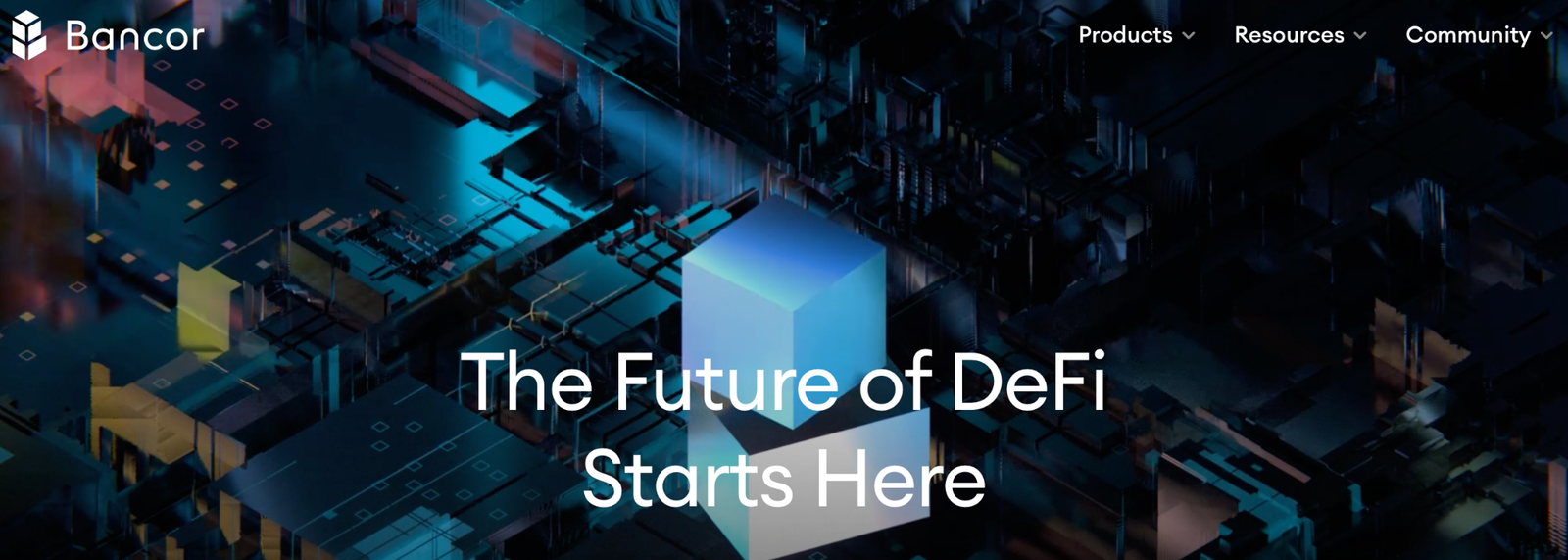
Bancor hired Will Ruddick (of Grassroots Economics) to oversee the “community inclusion currencies” project in Kenya (the tech hub in Kenya is called Silicon Savannah). In 2013, Will Ruddick was arrested by the Kenyan government for suspicion of forgery and links to the Mombasa Republican Council (MRC), a separatist organization that advocates for the secession of Mombasa (Kenya’s second-largest city after Nairobi and a commercial hub of the coast). For a more detailed and concise look at the subject matter, check out Leo Sareceno’s article on community inclusion currencies and the use of digital twinning in social impact finance and catastrophe insurance securities.
In addition to Kenya’s Silicon Savannah, the Silicon Valley technocrats are well entrenched in Rwanda’s Innovation City in Kigali and Sheba Valley in Ethiopia. In the Horn of Africa, Ethiopia plays the same role that Israel plays in the Middle East (neighborhood watch). Similar to how Israel and the U.S. share raw intelligence with one another, facilitated by the NSA, Ethiopia has also played a vital role in U.S. signals surveillance. In fact, in 2002, the Ethiopian government collaborated with the NSA to launch the Deployed Signals Intelligence Operations Center known as Lion’s Pride. Furthermore, Ethiopia has used Cyberbit, Israeli spyware, to monitor citizens and journalists.
In the last months of 2020, Ethiopia was embroiled in a brutal civil war. In the midst of that conflict, developers behind Cardano and IOHK announced their plan to help Ethiopia rise from the wreckage by collaborating with Ethiopia’s Ministry of Education to register the identities of five-million school children on the Cardano blockchain (detailed coverage on this topic by Alison McDowell here). It’s worth noting that in 2014, an AI company based out of Hong Kong, OpenCog Foundation (with funding from the Jeffrey Epstein IV Foundation) launched an AI and Robotics lab in Sheba Valley called iCog Labs (with Ben Goerzel as an advisor). The iCog Labs in Ethiopia is also partnered with Charles Hoskinson’s blockchain venture, Cardano. It makes one wonder if these “innovators” are drawn to nations in turmoil because they want to fix things or because poverty and corruption are the ideal conditions for entrepreneurs looking to capitalize off of vulnerable communities.
Another tech guru actively exploiting Africans is the current darling of the AI world, Sam Altman. In 2019, Altman launched the Worldcoin Initiative, an identity authentication project that collects highly sensitive biometric data in exchange for digital tokens (usually from desperate people living in economically insecure conditions). Kenya served as a major testing ground for the iris-scanning chrome contraption (or Orb) designed to resemble “a decapitated robot head.”

In Kenya, Worldcoin required “users to give their iris scans in exchange for a digital ID…as part of plans to create a new identity and financial network…[and] more than 350,000 Kenyans had signed up for Worldcoin…in exchange for free cryptocurrency tokens worth around 7,000 Kenyan shillings ($49).” Furthermore, an investigation conducted by MIT Technology Review revealed:
“wide gaps between Worldcoin’s public messaging, which focused on protecting privacy, and what users experienced. [They] found that the company’s representatives used deceptive marketing practices, collected more personal data than it acknowledged, and failed to obtain meaningful informed consent.”
Eventually, the Kenyan Interior Ministry suspended the company’s activities–like authenticating human identities via Proof of Personhood protocols–in Kenya.
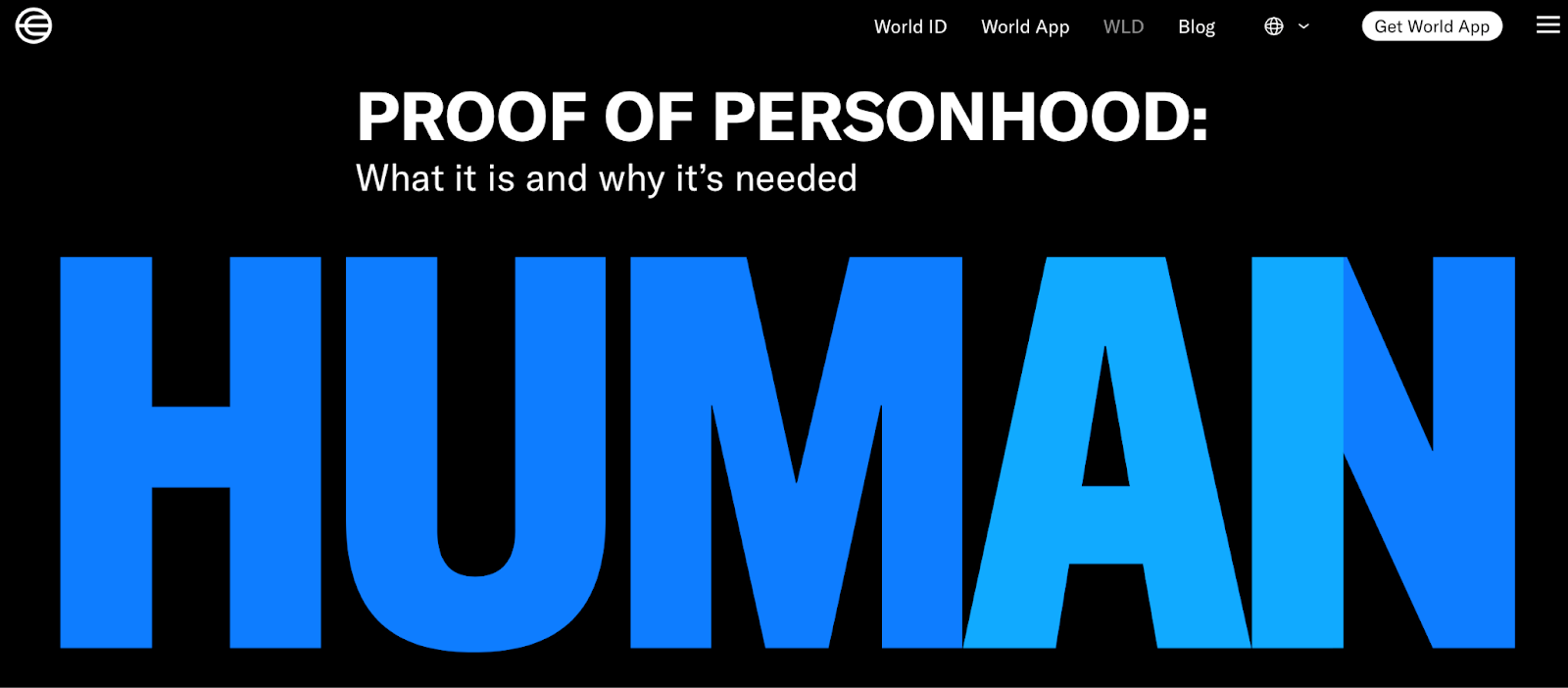
From Bancor’s community currencies and Sam Altman’s biometric data grab in Kenya to Cardano using war as a pretext to engineer and then crystalize a surveillance apparatus built on blockchain in Ethiopia, African countries are regularly used as testbeds for new financial instruments and monitoring techniques. This is not unlike how the Israeli military and tech companies use Gaza and the West Bank as labs to experiment with new surveillance technology and weaponry (like the AI-controlled “riot gun” installed at a checkpoint in Hebron).
Kohelet Policy Forum, Jeff Yass & Poker Philosophy
Other crypto-linked billionaires are playing an even bigger role in contouring the layout for a “new” Middle East, specifically as it relates to the current iteration of the Israel-Palestine conflict. Earlier this year, I wrote a post about Kohelet Policy Forum (the organization responsible for crafting many of Netanyahu’s recent judicial and policy reforms in Israel). Kohelet is funded by a network of billionaires, like Jeff Yass, who helped create the options-trading powerhouse, Susquehanna International Group and sits on the advisory board of the Cato Institute (he’s been called the Sheldon Adleson of Israel). Yass adheres to a concept called “poker philosophy” (crafting policies based on futures markets). It’s similar to futarchy, an idea that originated from the economist Robin Hanson who envisioned a futuristic form of government where prediction markets can be used to determine public policies. Vitalik Buterin, computer programer and co-founder of Ethereum, also champions the principles of futarchy and liquid democracy–as illustrated by his 2014 post titled, An Introduction to Futarchy.
According to a Haaretz exposé, Kohelet operates under the radar to shape critical centers of power in the Knesset government and the judicial branch (with a focus on promoting settlements and advocating for the privatization of the public sector). The Tikvah Fund, another U.S.-based organization, finances and works closely with Kohelet (the two entities even share board members).

In addition to Kohelet, Tikvah has also financially supported the Institute for Zionist Strategies–the think tank that crafted a paper entitled, “A Plan for Resettlement and Final Rehabilitation in Egypt of the Entire Population of Gaza”(suggesting a Nakba 2.0). As I stated in a previous post, Kohelet was the intellectual architect behind Netanyahu’s judicial coup that sparked a national crisis leading to hundreds of thousands of Israelis protesting against Netanyahu (many even calling for his removal). Conveniently, much of the fervor against Netanyahu and his government vanished after the events on October 7th.
In essence, Kohelet attempts to “bridge the gap” between the ultra-conservative zionists and the libertarian-minded business class in Israel to create a big “centrist” tent. They do this by focusing on issues they agree on and avoiding scissor issues that can divide the “conservative” base (Likud Party). This strategy is similar to the Heritage Foundation’s “Project 2025” agenda, which plans to “unite the conservative movement and the American people against elite rule and woke culture warriors.” Jeff Yass finances “bridge-building” institutions (e.g. Kohelet) and actors (e.g. U.S. Senator Rand Paul) in both Israel and the United States. Rand Paul plays an intermediary role within the Republican Party–connecting the free-market libertarians with the Christian nationalists (the same role played by his father, Ron Paul, in the 1980s).
It’s worth noting that in the summer of 2022, Susquehanna International Group was due to follow the footsteps of Sam Bankman-Fried (of FTX) and open an office in the Bahamas (because of the island’s relatively friendly crypto regulations). Jeff Yass is also the largest outside investor of ByteDance (the parent company of TikTok). Yass being an early investor in a global phenomenon like TikTok validates my assertion that Susquehanna International Group plays a crucial role in culture creation: shaping synthetic, algorithmically amplified phenomena online (i.e. what trends or goes viral). Since Yass is one of Rand Paul’s top individual donors, it makes one wonder if Rand Paul’s opposition to banning TikTok was because of his commitment to “free speech” or because of his ties to one of TikTok’s top investors.
Bank Leumi, Paxos & Fireblocks’ Project Eden + Crypto Aid Israel
In 2022, Bank Leumi was the first Israeli bank to enable crypto trading. They partnered with the U.S.-based company, Paxos because “the company holds several licenses to operate with Bitcoin, altcoins, and blockchain technology…[and] has managed to consolidate important partnerships with PayPal, Revolut, and the Bank of America.” It’s worth noting that, a few years ago, Bank Leumi was under investigation for helping many diaspora Israelis launder their money and eventually admitted “that it conspired to aid and assist U.S. taxpayers to prepare and present false tax returns to the Internal Revenue Service (IRS) by hiding income and assets in offshore bank accounts in Israel and elsewhere around the world.” Israel is often described as a “Switzerland for Jews” because it provides all of the same services (sans the banking secrecy laws).
In December of 2021, the co-founder of Paxos (Bank Leumi’s new partner), Charles Cascarilla, testified at the Digital Assets and the Future of Finance hearing in Congress alongside Sam Bankman-Fried (disgraced FTX founder) and Brian Brooks (former Comptroller of Currency under Trump and executive at Binance and Coinbase). Paxos was one of the first crypto-native syndicates to receive a conditional charter (granted by the Office of the Comptroller of the Currency or OCC) to establish a national Bank Trust. More details regarding FTX, the OCC, rebranding the IMF, financial intermediation unbundling, and neobanks can be found on my Bitcoin Bandits post here.
In 2022, Israel’s Ministry of Finance and the Tel Aviv Stock Exchange established the first digital government bond with Fireblocks (a digital assets security platform). The initiative was called Project Eden and it focused on three features: “the tokenization of fiat, the tokenization of government bonds, and instructions to prompt the exchange of assets.” Fireblock’s CEO and co-founder, Michael Shaulov, was a team leader in an elite military outfit, Unit 8200 (participating in the most demanding and mission-critical IDF projects).
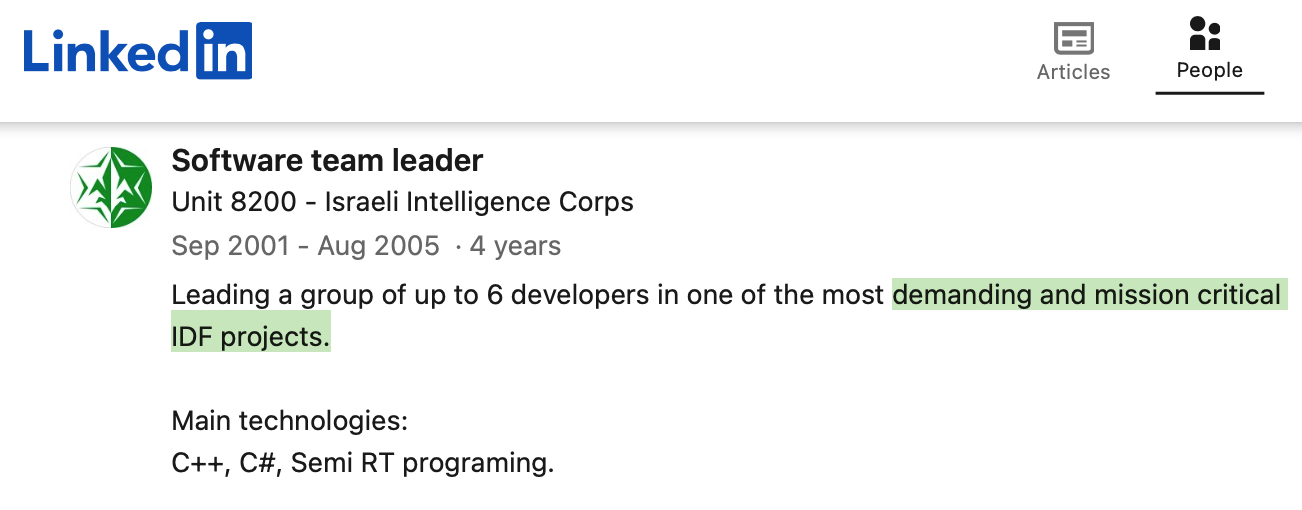
“Eden” (meaning paradise) is an odd name for a project focused on applying blockchain technology to the issuance, settlement, and clearing of digital government bonds. Are they implying that the transition to digital governance is a quantum leap to some sort of cyber paradise? Either seems at odds with reality, as Project Eden is apparently assembling the infrastructure necessary for an electronic panopticon (not exactly cultivating a realm of eternal pleasure and delight).
In 2022, Fireblocks was the highest valued digital (tokenized) asset infrastructure provider, supporting over 800 major institutions. That same year, BNY Mellon, the world’s largest custodian bank, tapped Fireblocks to develop a financial infrastructure for managing their digital assets and, since then, Fireblocks has secured the transfer of $2 trillion in digital assets.
Since the Israel-Hamas war began (on October 7th), Israeli banks and regulators have assisted Crypto Aid Israel with the flow of crypto donations. It’s unclear who started the fund, but Fireblocks (of Project Eden) has stepped in to handle those crypto assets.

During the height of the Russia-Ukraine war, I noted that cryptocurrency was being touted as a “savior” from the central banking cartel (on both sides). Since Ukraine’s central bank banned electronic cash transfers and shut down ATMs, Ukrainians turned to cryptocurrencies to deal with the economic crisis caused by the martial law declared by their government (as a result of Russia’s invasion). Similarly, as the Russian ruble took a hit, Russians also turned to cryptocurrencies. Most notably, the Ukrainian government partnered with FTX (Sam Bankman-Fried’s fraudulent enterprise) to launch a crypto donation website. Refer to my Crypto Conundrum in Ukraine & Russia and Bitcoin Bandits posts (here and here) to get a clearer understanding of why these “crowdfund your war with crypto” platforms are highly suspect (whether in Israel or Ukraine).
Tokenizing Real Estate to Expedite Israeli Settlements, Tony Blair & Fireblocks
A few months ago, the Jerusalem Post reported that Israel’s Land Authority was developing mechanisms to tokenize the real estate industry by seeking blockchain consultants to aid in the transition to smart contract-based real estate agreements and license management. The use of distributed ledger technology and blockchain would help the Israeli government streamline the property registration process (especially in the West Bank). Fireblocks is also leading the charge in advocating for Israel’s real estate industry to adopt blockchain and tokenization.
The Israeli Land Authority most likely wants to tokenize the real estate industry because it would speed up transactions and reduce feeds. This could pose a problem because many of the transactions processed by the Israeli Land Authority are those that involve the expansion of illegal Israeli settlements on occupied land. For instance, in May of 2023, The Jerusalem Post noted that the Israeli Land Authority website published a list of 1,248 new housing units in the West Bank and, despite pushback from Palestinians, Netanyahu’s government pressed ahead with settlement expansion. Perhaps the Israeli government is tokenizing the real estate industry to not only stay ahead of the tokenized asset economy, but to create a fast and legal process for illegal land grabs in the West Bank. After all, Mike Pompeo did announce that the United States no longer viewed Israeli settlements (legal or illegal) as “inconsistent” with international law. Furthermore, Israel’s Absentees Property Law gives the state legal authority to transfer buildings (that were abandoned by Palestinians during the Nakba) to the Israeli government.
As Netanyahu’s government is being rightfully criticized, The Times of Israel reported that, in an effort to temper international concerns over civilian deaths, Prime Minister Benjamin Netanyahu is seeking to appoint former British Prime Minister, Tony Blair, as a “humanitarian” coordinator for Gaza. This would allow Blair to play the role of “liberal hero” in the midst of conflict–which would give Netanyahu’s war efforts more legitimacy on the international stage. This is perfect timing for Blair because he’s a key figure in 4IR-driven regulations for global governance and transparency. A lot of this advocacy work is done through the Tony Blair Institute, known for publishing lousy puffery, like this piece applauding Malta’s transition from colonized dependence to blockchain leader.
In 2002, Tony Blair launched the Extractive Industries Transparency Initiative (EITI) at the World Summit on Sustainable Development in South Africa. Blair’s EITI is an international regulatory organization that claims to promote and support government transparency in resource-rich countries. I previously noted that the EITI announced the CAR was finally on “a path to acceptance” and lifted its suspension, in 2021, after the CAR agreed to implement the EITI’s recommendations. From my estimation, the CAR likely tokenized its natural resources in order to comply with the EITI standards about transparency. Since then, the CAR expanded from resource tokenization to land tokenization. In 2022, Tony Blair, Bill Clinton, and Sam Bankman-Fried all attended a rather exclusive crypto conference in the Bahamas to talk about Web3 and the future of cryptocurrencies. It seems as though Blair and Clinton were there to give crypto a “strange new respectability” and reassure legacy investors that it’s legitimate.
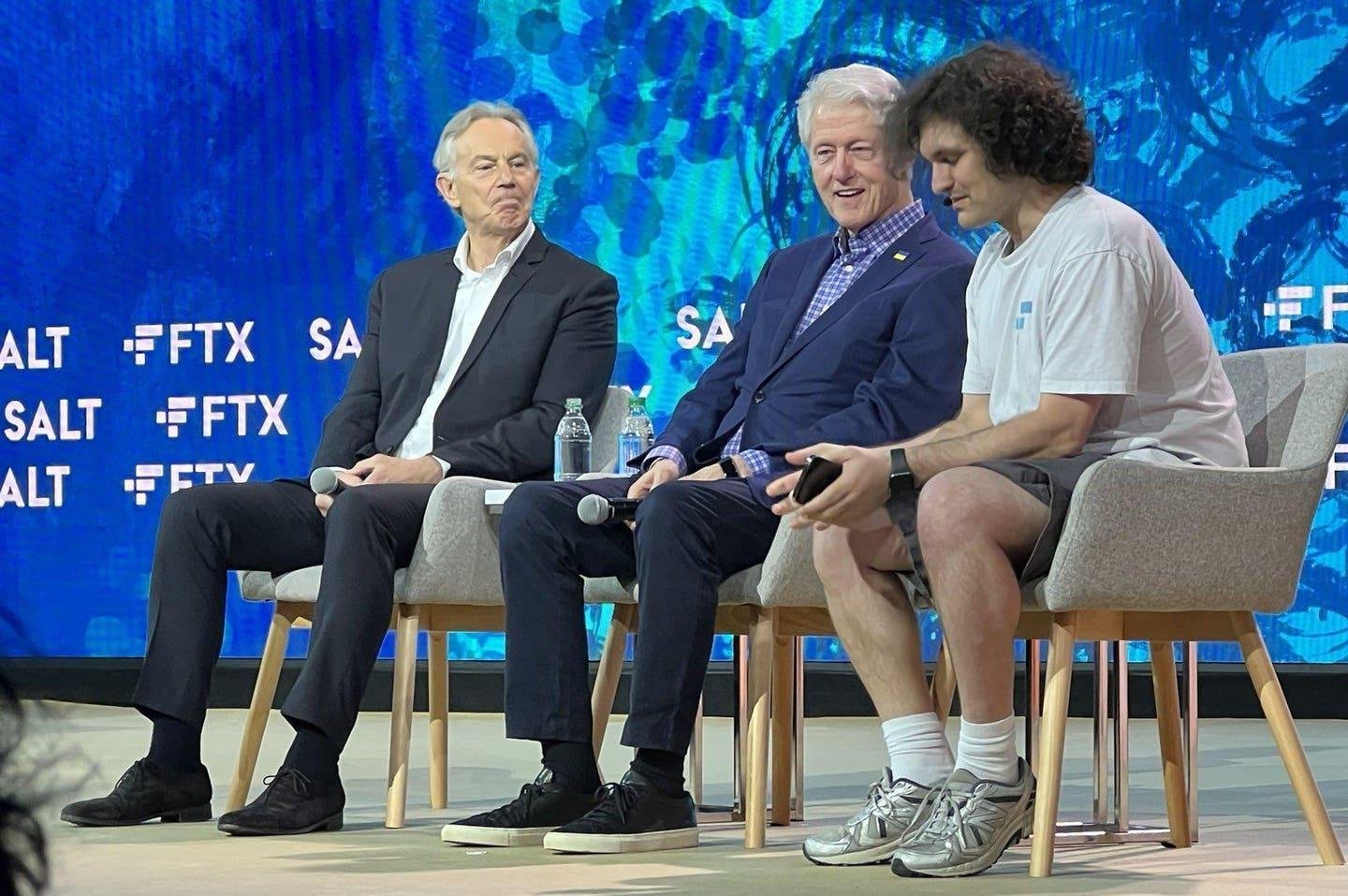
Tokenizing real estate permits fractional ownership and allows “a group of friends to buy a property together…[and] adjust the group ownership…as opposed to transferring a traditional land title.” In fact, the Chief of Risk and Strategy at Fireblocks, Roi Karo, argued that the fractional ownership of assets enables people with less means to participate, which “lowers the barrier to entry and opens up access to a much bigger pool of investors” (translation: it gives predatory fintech scoundrels access to an untapped market).
According to Boston Consulting Group, “the total size of illiquid asset tokenization globally would be $16 trillion by 2030” (with 20% of that in real estate). Furthermore, as highlighted by a Newsweek article, down the road, smart contracts can be automated “to do things like disable keys…[when the] rental agreement is no longer current.” This is definitely a tool that can be used to torment the already dispossessed. Technological advancements don’t inherently fix human challenges because only humans can alleviate human problems. The tools are neutral, but how they are used is not. Individuals or groups with different values and character traits can use those tools to operationalize their half-baked, immoral ideas. As long as there is free will, some people may choose to engage in any number of corrupt and destructive behaviors that fall within the spectrum of the Human Condition.
Alex Gladstein’s “Bitcoin is Human Rights” Crusade & the Techno-Tyranny Continuum
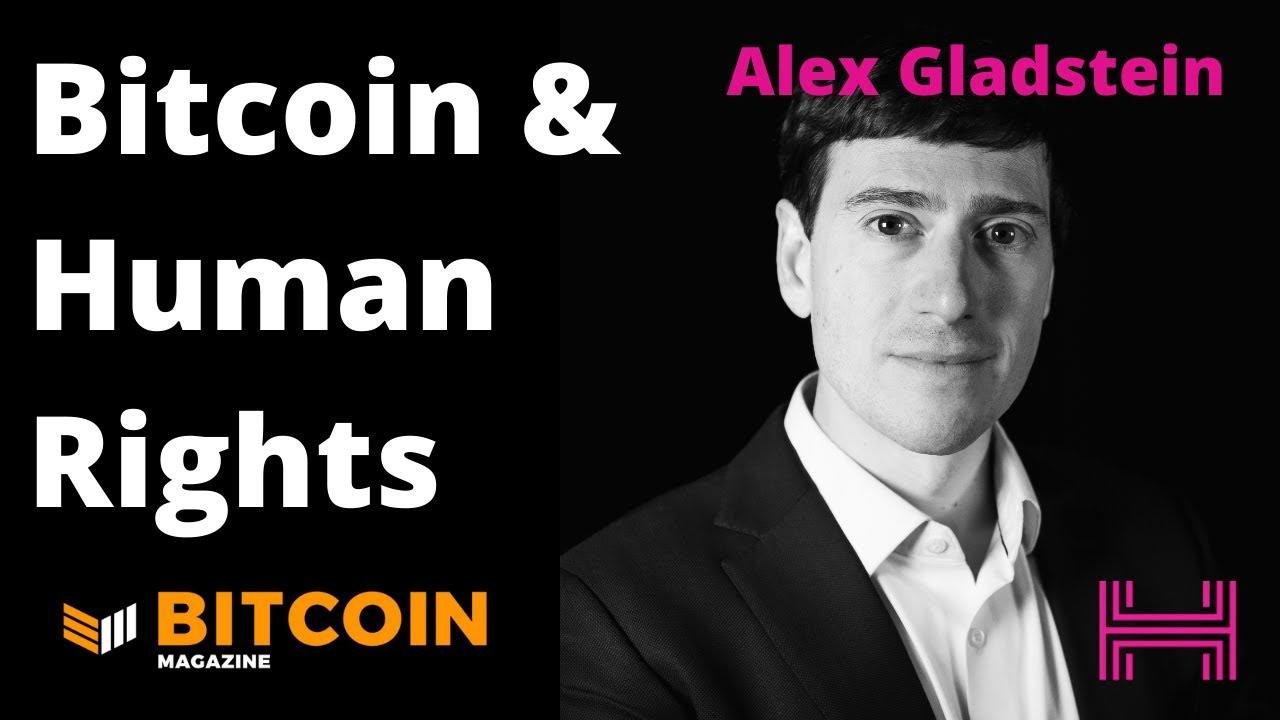
A few words on the, crypto bros, including Bitcoin maximalists who profess that countries in the Global South can free themselves from their imperial masters by just adopting Bitcoin and/or other cryptocurrencies: “fix the money, fix the world” (as they like to say). One such offender is, astroturf extraordinaire, Alex Gladstein. I wrote about Gladstein last year in my French Imperialism vs. Crypto Colonialism piece (posted here and here); however, he’s worth highlighting again because of an article he wrote about how Palestinians can use Bitcoin as a tool for “liberation.” Gladstein is notorious for using legitimate criticisms about the impact of economic imperialism as a pretext to propose his decentralized, “free market” Austrian school of economics solutions. He seems to think that blockchain technology and Bitcoin can rectify the consequences of nearly a century of colonial occupation, economic warfare through neoliberal policies, inhumane austerity, and corruption from within and outside the nations. As articulated by an article on MERIP:
“At best, the faux-humanitarian promises made by crypto’s cheerleaders to the Palestinian movement naively peddle an unattainable escape from deeper geopolitical ills. At worst, it cynically uses Palestinians’ experiences of persecution and domination to advance an external agenda…An independent Palestinian economy will not arise magically out of a sovereign currency, digital or otherwise.”
In his article on Palestine, Gladstein raves about a company called Paxful and their “vibrant peer-to-peer marketplaces in Palestine” and asserts that if Palestinians adopted Bitcoin in big numbers, it could “become a remarkably powerful peaceful protest.” In 2019, the same company Gladstein praised, roughly two years later, Paxful, was accused of blocking Nigerian users from millions in crypto funds. A Nigerian organization called United Global Resolve for Peace alleged that Paxful had confiscated the crypto investments of many Nigerian users by deactivating their wallets. Following an investigation, some of the users were cleared of any wrongdoings, but Paxful still refused to return the funds. Earlier this year, Paxful shut down its operation in Nigeria. Perhaps, Gladstein didn’t know about these allegations against Paxful when he wrote the article; however, if he did know, but just thought the charges were false then he could have explained why he didn’t think they had any merit.
Gladstein also argues that since Palestinians are a people with a history filled with confiscation, Bitcoin can give them a way “to take the fruits of their labor and time and lock it into an asset in cyberspace, beyond the control of Hamas, Israel, the PA or the World Bank.” This assertion has been proven false considering the Israeli government partnered with exchanges like Binance and stablecoin issuers like Tether and has been using those partnerships to freeze and deactivate Palestinian accounts deemed “Hamas affiliated”–how is that beyond the control of Israel?
In his painfully verbose and lengthy article, Gladstein’s thesis can be found buried toward the end of the report when he finally makes a clear pitch:
“There is a possibility here for Palestinians — or any vulnerable population, whether trapped by foreign occupation, domestic authoritarianism, a collapsing economy, or a structural lack of opportunity — to adopt Bitcoin as a new currency. Millions of individuals are already making this choice in Turkey, Argentina, Nigeria, Iran, Lebanon and beyond.”
Gladstein is part of the Human Rights Foundation (HRF), which explains why his rhetoric is taken straight out of the “How to Market Bitcoin for Dummies” handbook sprinkled with the U.S. State Department line on nearly all nations in the southern hemisphere: domestic authoritarianism. Gladstein is also part of the Oslo Freedom Forum (where Peter Thiel is a patron) and Singularity University (founded by, futurist, Ray Kurzweil).
Most mainstream and alternative public discourse (regarding the ethics around the cynical use of technological innovations) is rather rudimentary. It’s usually around a narrow dialectic that focuses on the larger than life “globalist liberal elite” (represented Bill Gates, Sam Altman, Klaus Schwab, George Soros, and Mark Zuckerberg) facing off against the “based” traditional-conservative (tradcon), libertarian technocrats (championed by characters like Peter Thiel, Elon Musk, David Sacks, and Donald Trump). When, in reality, both sides are attempting to shift society toward a similar direction–using different routes to reach the same destination.
The Dayz of Noah channel has a segment that dissects this particular dialectic and the part about Musk’s “human authentication” vs. Altman’s “proof of personhood” is especially illuminating because Musk and Altman have similar objectives: trust, compliance, and demand. The video breaks it down as follows: characters like Elon Musk use social media to create trust through culture creation, hence why Musk purchased Twitter and made a spectacle about the “Twitter Files” and fighting liberal censorship. This helped Musk cultivate a digital army of loyal “anti-woke” warriors who would use the “twitter leaks” to fight the culture war. Next, compliance is achieved by making it super convenient to obey and unbearable to resist; then, eventually, people start to demand the “technological solutions” to human problems.
As I noted earlier, Musk partnered with Israel’s AU10TIX to verify the identities of Twitter Blue users. That being said, one could argue that Musk has ambitions to implement, streamline, and scale his “human authentication” objectives–which are not that different from Altman’s “proof of personhood” goals (minus the spooky crystal ball looking Orb).

Gladstein most likely emerged from the Thiel-Musk faction of the “techno-tyranny” continuum, considering Thiel has been a vocal advocate of the HRF and the Oslo Freedom Forum for over a decade (with both of which Gladstein is affiliated). Gladstein seems to believe that money is at the root of Palestinian struggles, so they should just adopt Bitcoin; however, as noted by MERIP, his explanation is naive because “the monetary relationship between Israel and the Palestinians reflects a more fundamental political asymmetry of power.” I would add that there’s a layer deeper than the “political” and that’s the realm of ethics and morals–which cannot be quantified or analyzed through dialectical materialism.
In his article, Gladstein argues that Palestine could become the El Salvador of the Middle East (since El Salvador was the first country to adopt Bitcoin as a legal tender). He continues his Bitcoin spiel by commending Nayib Bukele (El Salvador president) for his tremendous job at providing the world with a template of how Bitcoin can be operationalized on a national scale. He was also excited by the irony of the first leader to adopt Bitcoin (Nayib Bukele) being of Palestinian origin and how that’s all the more reason for Palestine to follow the same path as El Salvador.
He concludes his article by highlighting that “the left” attacks Bitcoin from a position of “privilege” because all they do is “virtue signal” online instead of offering solutions (like advocating for Palestine to adopt Bitcoin or other crypto). I don’t think you can call Bitcoin a concrete solution if the move toward crypto is due to desperation and not necessarily because of innovation or creative expression. This type of argument is humorous because it’s predicated on the assumption that Gladstein and his faction of the “Bitcoin as human rights” cult understand the nature of the problem in the first place. It’s a premature leap toward superficial solutions without properly diagnosing the problem. Plus, Gladstein deducing human problems to “the economic system” is incredibly narrow-minded, shortsighted, and indicative of an individual who has yet to grapple with the philosophical underpinnings of his beliefs and overall perspective.
U.S. Bipartisan Support of Israel
To be clear, Trump’s predecessors (democrat or republican) also supported the ambitions laid out in the “Peace to Prosperity” plan. This article’s focus on Trump’s shenanigans in the Middle East should not be misconstrued as downplaying the Democrat’s transgressions because the United States’ support of Israel is, and has always been, bipartisan. Even though neocon hacks like Ben Shapiro try to argue that Barack Obama was the most “anti-Israel” president–it’s simply not true. For instance, in 2011, Palestine was granted full membership in UNESCO, and in response, Obama pulled U.S. funding for UNESCO. That same year, the Heritage Foundation published an article applauding the Obama administration for correctly perceiving that the Palestinian push “for statehood absent a negotiated agreement with Israel [was] an attempt to isolate Israel.” That being said, it’s also true that UNESCO was created by advocates of eugenics (like Julian Huxley) who believed that humanity could be improved through deliberate eugenic measures. Nevertheless, the point still stands because it’s one of many examples that dispels any notion that the democratic establishment is anti-Israel.
In addition to the Republican Party’s connections to Israeli intelligence and figures involved with NSO Group (via Erik Prince and others), it’s also worth noting that US Senator Mark Warner (Democrat from Virginia) has been linked to one of the co-founders of NSO Group. This episode of The AnteDote podcast deals with Senator Warner’s alleged ties to Omrie Lavie (co-founder of NSO Group) through Warner’s private and political relationship with Nicholas Perrins.
To Conclude
In this exploration, the goal was to, first, highlight how the Trump Administration, UAE, Netanyahu, and the Kohelet Policy Forum all played significant roles in establishing the mechanisms that have led to the hyperreality-level peril and tragedy currently unfolding in the Middle East. Second, to show the common thread that runs through Trump’s BUILD Act (which most likely provided the resources to lure the Arab world into normalizing relations with Israel via the Kushner-brokered Abraham Accords) and Biden’s “Build Back Better” plan. In addition to unveiling some of the crypto industry’s links to Netanyahu (along with Nafali Bennett’s recent remarks about engineering a technocratic panopticon in Gaza) and showcasing the parallels between Ukraine and Israel both using cryptocurrencies to fund their “humanitarian” efforts.
This examination, ideally, demonstrates how Israel’s Land Authority–seemingly–strives to expedite Israeli settlements by tokenizing the real estate industry (a move which would streamline illegal land grabs in the West Bank). And hopefully it’s clear why it’s not only problematic, but a misdiagnosis of the problem itself, for the crypto and Bitcoin enthusiasts to market digital currencies as an antidote to government corruption in the “Global South” (including Palestine).
It’s important to discuss the technological innovations and financial instruments being tested in “developing” countries because, first and foremost, they’re human beings, so their lives are inherently precious and important. Second, these pilot programs are usually augmented worldwide and, eventually, they make their way to the “developed” world. Many of the new monitoring and compliance frameworks and policies are first tested out in nations with little to no existing physical or legal infrastructure because it’s easier to build on a “blank slate state” than to transition an old structure into a new one. Either way, the chickens always come home to roost.






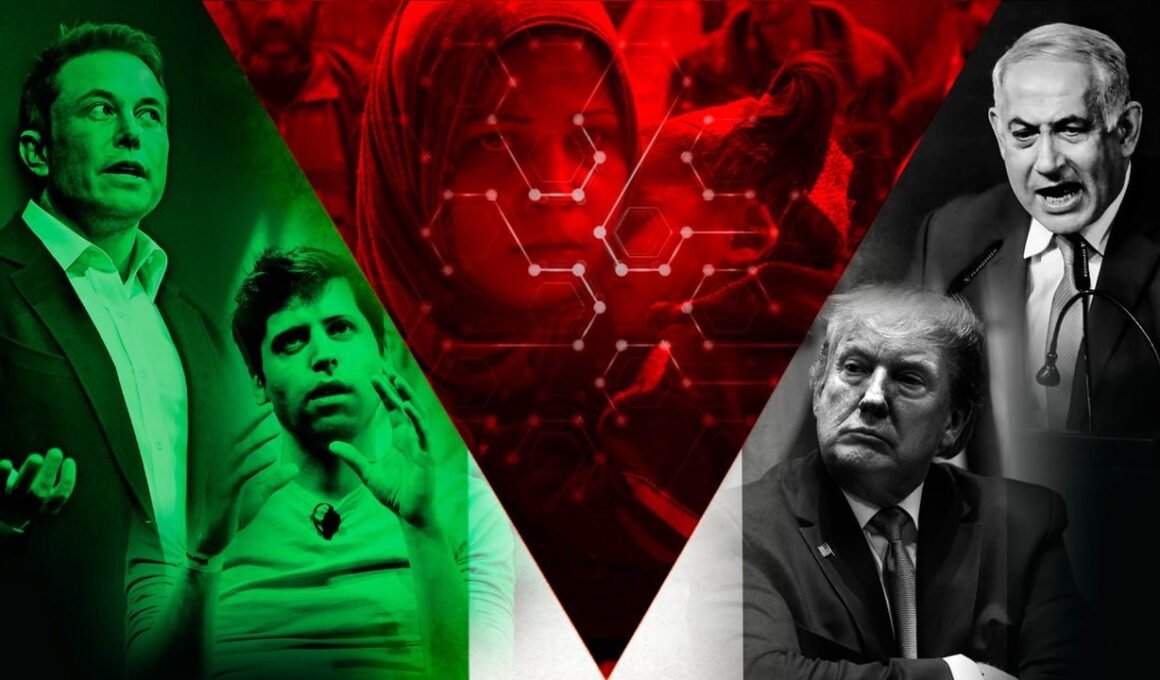







The author’s commentary phrases are jarring. There is no need to add things like “So brave” and “Interesting how that works” in an article that is supposed to be a serious analysis. Hopefully as this writer gets more experience, she will stop using this style. It comes across as sarcasm and detracts from the message.
Because Whitney Webb posted this article on Twitter, I read the whole thing from start to finish. The inter-relationships of all these people in technology, finance, and political sectors is morbidly fascinating. You have to ask yourself, what can I do about it? Nothing, not a thing. Ordinary people are just ones and zeroes to the technocrats, I was there. How much manpower at what cost to produce how much product is all they care about, numbers on a spreadsheet.
“What can I do about it?”
What’s described here might be a start https://www.pdrboston.org/how-we-can-remove-the-rich-from-power
And here https://www.pdrboston.org/egalitarianism
And on substack here: https://johnspritzler.substack.com/p/what-is-an-egalitarian-economy-342?utm_source=profile&utm_medium=reader2
I love the commentary phrases like “So brave” and “Interesting how that works”.
“You have to ask yourself, what can I do about it? Nothing, ”
It’s true; to know the intricacies of what the Deep-State is doing is a waste of mental energy for its comprehension. Short of a mass Peoples uprising which, even it were to happen, would only result in major human loss; ultimately part of the Globalist’s stated plans from the start.
This was a really well-written and deep investigation Sebs, so many different players who appear to be on opposite sides of the chessboard but working in tandem. Some people think that wars speed up technological development, you’ve shown in this article that they only speed up tyranny. False prophets on every side of the political paradigm, all with their share of shady connections. I’m grateful for articles like these as they help shine a light on these characters and their agendas, now the ball is in our court to do something about it. Here’s to people seeing through the illusion and deciding to use technology for good – rejecting the convienience trap that is offered to us in our darkest times. Looking forward to reading more from you.
Author was great. Thank you for such informative research.
Ignore the defeatist in the comments as well as arm chair writers who critique your style rather than talk about the substance of your article which is great. They are just envious they are don’t have the courage to do what you do.. They are idiots. Keep at it!!
in the comments look who not only didn’t take their own advice & piss off but in addition went to a lot of trouble with psychological interest. Mass movement? When it’s only a few ru(i)ning the world right now, guiding, shaping it into their own toilet paper. Any human mind, you one day realize dystopian neoliberal hell scape – the world sux. Mental step 2 is obvious: you wanna know why, how it got so rigged. It’s a natural ordinary human propemsity for curiosity. But for fans who even made it to this site in the 1st place you think to deter them? Allow us to humor the contradictory: should we then obsess over a Swift, Beiber, Miley concert tour? Then when an attendee is burned to death by the pyrotechnics & IMMEDIATELY the Q, the reactionary, the regressive claim it was Jewish space lasers then will Joseph be so careful to run around dismissive shushing all those sites,in their haunts? All one side have the money & guns. The wizard of Oz show is held together by neglectful public. Consciousness raising & deprogramming is the straightforward next evolutionary move.
Setting aside Margaret Mead, that all it’s ever been is a small dedicated group to change the world, there is a far more fundamental error of hubris in the comments below. Men on the moon was fiction hundreds of years ago, yet it became science fact. Just because you do not know something now does not logically entail it is categorically unknowable. The chance to strike the bourgeoisie may come upon you soon. Never mind that you can do nothing now at this particular moment. Keep learning, growing,becoming, gaining in prowess, keep building. Many will need help exiting Plato’s cave & you could help guide if you are further advanced. All day everyday the incessant narcoleptic forcefield dissuades you. Don’t let Schwabb & friends win! Hone your ability to see through the noise & confusion.
Nonsense. She conveyed the information. It’s her style. Your criticisms are puerile and unwarranted.